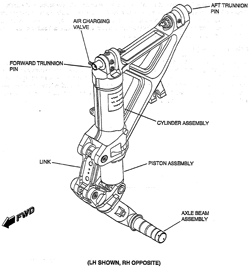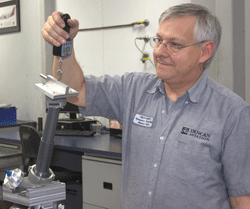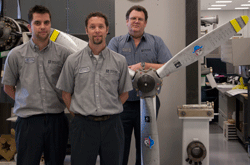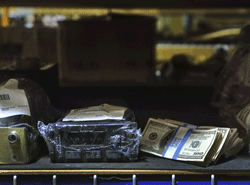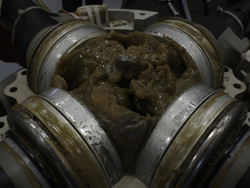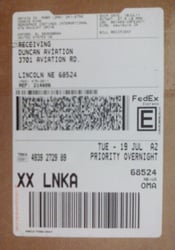Contributed by Jerry Cable, Accessory Tech Rep

Several small leaks in the bleed air system of your business aircraft can add up to a significant problem.
Inherent with most business aircraft is the need to utilize engine bleed air. Whether it be for de-icing, cabin heat or system control; bleed air is vital to the aircraft operation. Leaks in the bleed air system are common and often neglected for one reason or another, but one thing is for certain; a leak never fixes itself.
High Bleed Air System Demands
While a small leak in the bleed air system is usually not a problem and is probably the reason we neglect fixing it; several small leaks can be a significant problem. The system has several components which control the volume and temperature of the air in different sections of the aircraft and these components self-regulate based on the demand for that air.
Unnecessary Removal of Suspect Components
The cabin may be in demand for warm air, the windshield needs defogged and the leading edges need de-iced. The demand for bleed air begins to climb, yet the cabin is still cold. This might lead to inadvertently removing suspected components, such as the cabin temperature controller or modulating valve, for repair. Sure they may need a reseal but the real problem lies in the leaks. The system is demanding more than what the system can supply due to the leaks.
Erroneous Temperature Sensor Readings
There are other situations where a bleed air leak could cause even more confusion. A bleed air leak in the area of a temperature sensor can cause erroneous readings. For example, if hot bleed air leaks next to an air-conditioning or de-ice temp senor, it can cause them to read temperatures not accurate to the duct they are installed in.
To avoid the unnecessary removal of components and ease in the trouble shooting process, it is always a good idea to spend the necessary time to fix the bleed air leaks when they are small. It may not seem like a big leak but every little bit helps.
For help in identifying, troubleshooting and fixing blead air leaks, contact Jerry Cable, Duncan Aviation's Accessory Tech Rep.
Now through the end of January 2013, save $100 on your next repair, overhaul or functional test on your electrical and pneumatic units. Download the details and coupon here.
Jerry Cable is an Accessories Tech Rep located at Duncan Aviation’s Lincoln, Nebr., facility. He is a landing gear and accessory components and systems specialist. His aviation career began in 1991.



